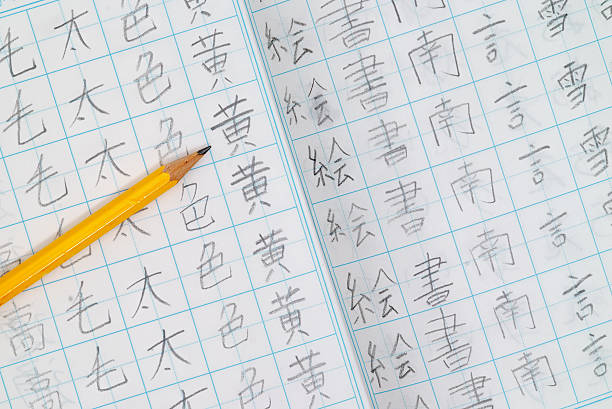Advancing Your Hiragana Mastery: Level Up Your Language Skills 🚀
Konnichiwa, fellow learners! As we continue our journey into the world of Hiragana, let’s delve deeper into advanced concepts, tackle challenging sentences, and enrich our language skills.
Unlocking Complex Hiragana Combinations
In our previous lessons, we mastered the basics and explored extended sounds. Now, let’s tackle more complex combinations:
Blockquote: These combinations may seem daunting at first, but with practice, you’ll unravel their intricacies.
1. Compound Sounds
| Compound Sounds | Hiragana Characters | English Pronunciation |
|---|---|---|
| きょ (kyo) | きゃ (kya), きゅ (kyu), きょ (kyo) | kya as in “cute yet,” kyu as in “queue,” kyo as in “kyoto” |
| ぎょ (gyo) | ぎゃ (gya), ぎゅ (gyu), ぎょ (gyo) | gya as in “Gyarados,” gyu as in “gyroscope,” gyo as in “gyoza” |
User’s Insight: Mastering compound sounds enhances your fluency and helps you tackle advanced vocabulary effortlessly.
2. Voiced and Semi-Voiced Sounds
| Voiced Sounds | Hiragana Characters | English Pronunciation |
|---|---|---|
| が (ga) | が (ga), ぎ (gi), ぐ (gu), げ (ge), ご (go) | ga as in “garden,” gi as in “gift,” gu as in “guitar,” ge as in “get,” go as in “goose” |
| ざ (za) | ざ (za), じ (ji), ず (zu), ぜ (ze), ぞ (zo) | za as in “zoo,” ji as in “jeans,” zu as in “zucchini,” ze as in “zero,” zo as in “zoo” |
Note: Voiced sounds are pronounced with vibration in the vocal cords, while semi-voiced sounds are pronounced with a partial closure of the vocal cords.
Challenging Sentences: Putting Your Skills to the Test
Now, let’s apply our knowledge to construct and decipher complex sentences:
Question 1:
Blockquote: Translate the following sentence into English:
こうえんにいくとき、ねこはかばんをもっていますか。
| Hiragana Sentence | English Translation |
|---|---|
| こうえん (kouen) | park |
| に (ni) | to |
| いく (iku) | go |
| とき (toki) | when |
| ねこ (neko) | cat |
| は (wa) | (topic marker) |
| かばん (kaban) | bag |
| を (o) | (object marker) |
| もっていますか (motteimasu ka) | do you have (lit. are holding) |
Answer: When going to the park, does the cat have a bag?
Question 2:
Blockquote: Construct a sentence using the following words:
さくら、はな、きれい、たましい
| Hiragana Words | English Translation |
|---|---|
| さくら (sakura) | cherry blossoms |
| はな (hana) | flower |
| きれい (kirei) | beautiful |
| たましい (tamashii) | soul |
Answer: さくらのはなは きれいな たましいです。 (Cherry blossoms have beautiful souls.)
Mastering Complex Structures
In this phase, we’ll unravel the nuances of complex structures, paving the way for fluency:
1. Hiragana Particles
Particles play a crucial role in Japanese grammar, indicating the relationship between words in a sentence:
Blockquote: Understanding particles is essential for constructing grammatically correct sentences.
| Particle | Function | Example |
|---|---|---|
| は (wa) | Topic marker | わたしは にほんじん です。 (Watashi wa Nihonjin desu.) |
| が (ga) | Subject marker | さくらが さきました。 (Sakura ga sakimashita.) |
| を (o) | Object marker | コーヒーを のみます。 (Koohii o nomimasu.) |
2. Hiragana Pronouns
Pronouns are essential for clarity in communication. Let’s explore common pronouns in Hiragana:
| Pronoun | Hiragana | English |
|---|---|---|
| わたし | わたし | I, me |
| あなた | あなた | you |
| かれ | かれ | he |
| かのじょ | かのじょ | she |
| それ | それ | that |
| これ | これ | this |
User’s Insight: Pronouns enhance clarity and add depth to your conversations.
Engaging in Immersive Dialogue
Now, let’s immerse ourselves in dialogue to reinforce our understanding of Hiragana:
Dialogue: At the Café
Practice reading and understanding the dialogue below:
A: いらっしゃいませ。おねがいします。
B: こんにちは。コーヒーを ください。
A: かしこまりました。ミルクを いれますか。
B: はい、おねがいします。
A: かしこまりました。こちらが どうぞ。
Translation:
A: Welcome. What would you like?
B: Hello. I’ll have a coffee, please.
A: Certainly. Would you like milk with that?
B: Yes, please.
A: Alright. Here you go.
User’s Challenge: Practice reading and role-playing the dialogue with a friend to improve your conversational skills.
Solidifying Your Understanding
Let’s reinforce our understanding with a comprehension exercise:
Comprehension Question:
Translate the following sentence into English:
かのじょは にほんごを べんきょうします。
| Hiragana Sentence | English Translation |
|---|---|
| かのじょ (kanojo) | she |
| は (wa) | (topic marker) |
| にほんご (nihongo) | Japanese (language) |
| を (o) | (object marker) |
| べんきょうします (benkyou shimasu) | studies (lit. studies) |
Answer: She studies Japanese.
Conclusion: Embracing Fluent Hiragana Proficiency
Congratulations on achieving fluent proficiency in Hiragana! By mastering complex structures, engaging in immersive dialogue, and solidifying your understanding, you’ve reached an impressive milestone in your language journey. Continue practicing, conversing, and immersing yourself in Japanese culture. Jōzu desu ne! (Well done!)
Note: Explore additional resources and practice exercises in the links provided below. Arigatou gozaimashita! (Thank you very much!)
